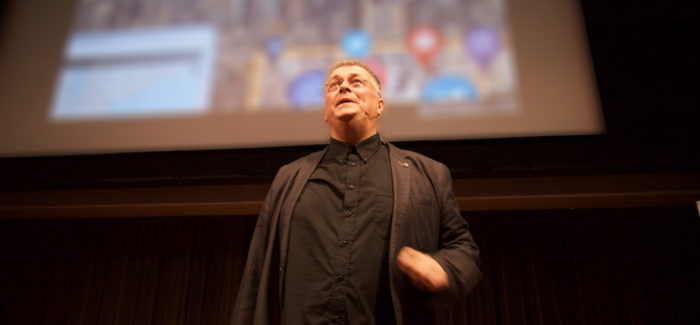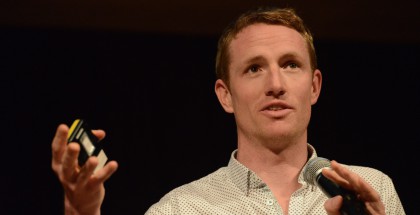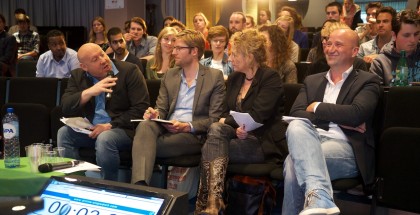Henk van Ess – Fact checking the web
Fact checking the web with Henk van Ess
Henk van Ess is a data-analyst who follows the data back to their sources, by the use of search engines, tools and social media. He quotes that everyone nowadays can be a journalist, but good journalists check their facts. He has 25 years of experience in the world of fact checking on various cases. Henk van Ess shows that there is much more to find online and how you can use it effectively.
‘’Are you in love with your husband but isn’t he the right donor for the best children you can get? Is he not that smart, or just outright fat? We have the solution!’’
During his keynote Henk talks about a few different cases on fact checking. The first case is a widely-discussed scheme online, in which a person by the name of Dan Richards founded a company named ‘Fame Daddy’. An online shop that offers celebrity sperm or as they refer to; ‘Premium insemination services’. Since it was such a controversial service – many people wondered whether this firm was real. Henk van Ess went on the case to find out if it was.
Fact checking roadmap
At the start Henk formulates some questions, like ‘’is this truly real’’ and ‘’how do they even get the sperm from the celebrities?‘’. He always investigates his cases using a roadmap. He describes the steps in a six-way plan.
- Go back to patient zero. Who was the first person to talk about a subject?
- Where in the world is there being talked about the subject?
- What media distributed the story?
- Look for different resources that are referred to in the media.
- Look up companies that were mentioned
- Photo validation, make screenshots and search them on the web
By following these steps, Henk found out that this company is indeed fake. Dan Richards isn’t a founder of a ‘’real company’’ that sells celebrity sperm, but is in fact an actor. And hereby dismantled this fake news business.
Google is your best friend
In his fact-checking Henk uses Google for certain subjects, as example for finding criminals. But how can you find someone that doesn’t want to be found? People leave tracks of their online behaviour and at the moment they don’t want to be found anymore, they try to delete everything that they have left behind. But they fail doing so. So how do you find these traces? To answer this you need to go back to patient zero. But since patient zero is probably the person you were looking for, he is unfindable. But he still left some tracks on websites, social media or an e-mail address that were dismantled. By searching these websites and go back to the last owner and actions on that website you have a good chance finding out more. You can do this by excluding the actual weblink, but including a term that is involved in the issue. In Google search you can do this by ‘’searchword’’ AROUND(12) – site: www.weblink.com. By using the quotes you specify your search on that word. By using AROUND (12) you put a maximum on the search results coming up and with the minus sign (-site) you exclude the actual dismantled weblink.
Another case was about a refugee that he spoke that fled out of Aleppo. In this interview the refugee stated that he got out of Aleppo without any struggles and without passing any roadblocks. He should have been traveling from East to West Aleppo. Because this refugee might have been a threat to our society, Henk was asked to do some fact checking on his story. By using an internet application named ‘Terra Server’, he found out that there was no way the refugee could have followed this route. Terra Server actually gave Henk the option to download a map from that area and put red dots on the spots were roadblocks were during the time-period the refugee fled. Henk calls this Geo-tracking.
Future of Facts
Henks ends his speech with a look into the future. He predicts that there will be more fact checking tools in the future and that open source intelligence will rise. Furthermore, he thinks that the amount of fact checkers will increase. They are not working for traditional media, but they will work together with them. ‘’If it’s out there, let’s find it together”.
Interview with Henk van Ess at Media Future Week 2017
This keynote speaker is made possible by Stadsfonds Hilversum.







